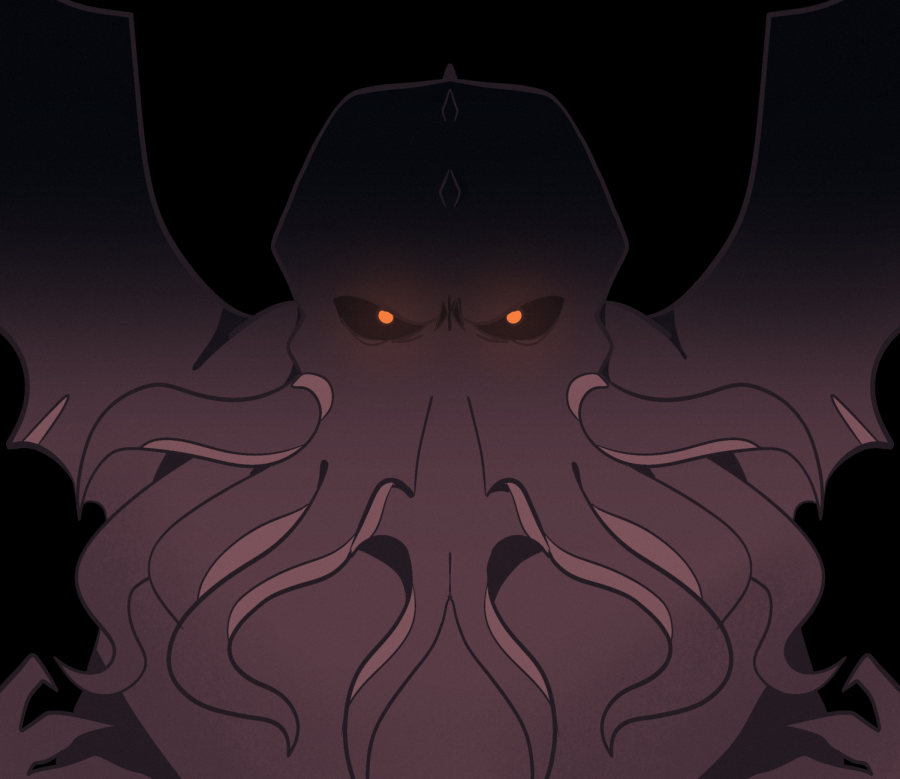Opinion | Horror genre deserves more recognition
April 8, 2022
Once the Oscars conclude, the following months are what the film community calls “dump months.” It’s when cheaply made movies and movies that are virtually excluded from awards contention are released in theaters — among them lie most horror films.
The reason horror films release during these “dump months” is because they are often regarded as the bottom of cinematic quality. There is some merit behind this, as the genre often crutches itself on tropes and cliches, but it also stems from an inordinate amount of respect for dramas among the film community and a disproportionate amount of disrespect for other genres, like comedies or horror films.
The appeal of horror is limited by the nature of the genre: Many moviegoers never watch horror films. The reason is up to the individual, but many times it stems from the fact that horror films displace one from his or her comfort zone.
As a self-proclaimed cinephile, I am appalled at the film community’s disregard and contempt for the genre, which only discourages new, ambitious directors with fresh perspectives from joining horror projects due to the lack of prestige any project is likely to accrue. This industry standard is representative of a broader problem, which extends well beyond the film community: The entire horror genre is overlooked, misunderstood and underrepresented.
Nevertheless, the horror genre serves a unique purpose. Horror films speak to themes of mental illness, grief and trauma in a way all other genres fail to do. Jordan Peele’s horror films confront issues of racism in a palatable manner. Horror literature and art often magnify the human fears of technology, the unknown and the little control an individual commands over the world.
Get The Daily Illini in your inbox!
To name an example, one of my favorite horror films — which is not for everyone — is Ari Aster’s “Hereditary.” When it was released, “Hereditary” became an instant horror classic. The film tackles themes of grief and generational trauma.
“Hereditary” is uniquely frightening because, as famous director Martin Scorsese alludes, one could remove the paranormal aspects of the film and still see a horror film coalesced around the deterioration of a family and the inability to reconcile past grief with one another. Then, it manages to innovate the cliche “haunted house” formula and weave a paranormal layer into the film’s identity. It stands as a strong model for other horror films.
These films are terrifying and will fulfill anyone’s desire for shocking jump scares and uncomfortable, tense scenes to raise one’s anxiety and adrenaline — all while delivering a nuanced message.
Additionally, horror is less about the storytelling and more about the individual who is consuming the material. It provides catharsis and allows people to process tough emotions from a distance. It allows people to practice empathy as characters struggle in high-stakes situations. It provides escapism to those who need it.
It also impels one to confront their beliefs — why would supernatural films frighten a true skeptic? Horror recommendations must be carefully tailored to the recipient, as everyone has disparate fears. There is paranormal horror, psychological horror, body horror and other subgenres. Slasher films and other nonparanormal horrors often elicit fear to suggest the most frightening risk to humans is other humans.
Different horror movies serve different purposes. Some are meant to scare the viewer at any cost — sometimes at the expense of a cogent plot — while others use suspense and tension to build to a thematic climax. Like comedies, different flavors and tastes preclude films from being ubiquitously lauded, which could explain why the ones that are usually become masqueraded or rebranded as dramas, thrillers or “elevated horror.”
Most tacky horror films are American-made. If one looks past Hollywood, they will find some of the most frightening and impactful horror films are international films that demonstrate common fears in other cultures.
Still, the film arm of the genre is, unfortunately, oversaturated due to the low budget needed to make most horror. That shouldn’t distract from the great contributions the genre has made. Thankfully, companies like A24, which back well-written, indie horror films, are helping allay the stigma.
Beyond film, horror has fascinating, underappreciated roots in literature, the Gothic period and romanticism.
For example, H.P. Lovecraft serves as one example of a link between the rebuke of rationalism and embrace of unbridled human emotion and contemporary horror, which similarly casts a spotlight on the darker sides of the human psyche.
Lovecraft used inspiration from other horror greats like Edgar Allen Poe to craft a whole literary universe whose crux was unfathomable, cosmic horrors.
Lovecraftian horror is easily identifiable as it often involves unknown, indifferent puppet masters of the universe whose magnitude compels the reader or viewer to contend with humanity’s insignificance in a cold, unapologetic universe. Lovecraftian horror serves as a reminder to explore all mediums of horror, as it doesn’t translate easily to the screen.
Horror does what all other genres do: They evoke and provoke. They reflect the human condition. They are useful tools and necessary stories that convey tough messages, even if they are sometimes obscured in the subtext. The academy may not appreciate horror, but I see its value.
Andrew is a senior in LAS.







